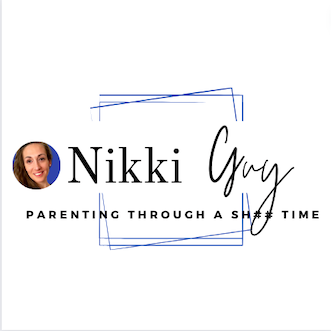
My Blog
My Blog

How Saying Thank You Activates The Most Important Nerve For Our Wellbeing
During my personal and professional journey to explore the intangible links between the mind, emotions, and bodies, I've occasionally stumbled upon groundbreaking scientific theories. These theories, while highly relevant to our lives, often lack the widespread recognition they deserve. One such revelation is the Polyvagal Theory, a relatively recent framework developed by Dr. Stephen Porges and further expanded by experts like Dr. Deb Dana.
Why Understanding the Ventral Vagal Nerve Matters
Understanding the ventral vagal nerve is crucial for managing stress, forming authentic connections, and achieving a true sense of safety and fulfilment. This knowledge can empower high-achieving women to handle stress, develop meaningful relationships, and overcome self-judgement and low self-esteem.

What Are the Branches of the Vagus Nerve and Their Roles?
The vagus nerve has two main branches: the dorsal vagal and the ventral vagal.
Dorsal Vagal: Responsible for, among others, the "freeze" response, a primal survival mechanism that kicks in during extreme stress, leading to shutdown or dissociation. This is also found in other groups such as amphibians and reptiles.
Ventral Vagal: Unique to mammals, the ventral vagal system evolved to support complex social behaviours and emotional regulation. When activated, it helps us feel safe, connected, and calm, which promotes a state of engagement and resilience.
The ventral vagal system is crucial for our survival as social mammals. Unlike the more primitive dorsal vagal system, the ventral vagal system allows for nuanced social interactions. It supports behaviours that are essential for building and maintaining relationships, such as facial expressions, vocal tone, and body language.

How to Activate the Ventral Vagal Nerve
Science proves that there are many ways to activate the ventral vagal nerve effectively. This can be achieved with simple practices such as:
Mindful Breathing: Deep, slow breaths can stimulate the vagus nerve, promoting relaxation.
Expressing Empathy: Engaging empathetically with others can activate the ventral vagal system, enhancing social bonds.
Humming or Singing: Humming or singing can stimulate the vagus nerve through the vocal cords, encouraging calm.
Gratitude Practices: Regularly expressing gratitude can enhance vagal tone and foster emotional well-being.
Consistency is key for lasting changes, but these techniques can also work well to calm our nervous system when we need it most.

Why Gratitude Makes Sense for Humans
Gratitude practices might seem like a modern fad, but they are deeply rooted in our evolutionary history. As social mammals, our survival has always depended on our ability to form and maintain strong social bonds and fit into a social structure. Expressing gratitude is a powerful way to reinforce these connections.
When we express gratitude, we trigger a cascade of positive physiological responses. For instance, our heart rate variability increases, indicating a more flexible and resilient autonomic nervous system. This makes us better equipped to handle stress and recover from setbacks. Moreover, gratitude helps us focus on the positive aspects of our relationships and environment, fostering a sense of community and belonging. In essence, gratitude helps us navigate the complexities of modern life with greater ease.
For example, consider a time when you felt genuinely thankful for someone's help. That feeling likely enhanced your mood and made you feel more connected to that person. This is the power of gratitude at work, reinforcing social bonds and promoting emotional well-being.

Examples of Gratitude Practices:
Gratitude Journaling: Spend a few minutes each day writing down things you're grateful for.
Expressing Gratitude to Others: Take time to thank someone personally, whether through a note, a message, or face-to-face.
Gratitude Meditation: Incorporate gratitude into your mindfulness or meditation practice.
“In the ventral vagal state, we have access to a range of responses including calm, happy, meditative, engaged, attentive, active, interested, excited, passionate, alert, ready, relaxed, savouring, and joyful" - Dr. Deb Dana.

My Personal Insight
If you are sceptical about these practices, you're not alone. I, too, initially dismissed them as "new age" nonsense or ineffective palliatives. After a bad day, writing a gratitude list seemed impossible and pointless. However, understanding the science behind gratitude and its connection to the vagus nerve motivated me to give it a try. Incorporating these techniques into my daily routine has significantly improved my mental, emotional, and physical well-being, with minimal effort compared to the profound impact they've had.
Conclusion
Understanding and leveraging the power of the ventral vagal nerve can be a game-changer for managing stress, improving social connections, and achieving a true sense of inner calm. For high-achieving women, embracing these science-backed practices can enhance mental and emotional well-being while displaying healthy leadership. This can be extremely transformative, and giving it a try doesn’t take much. Doing so can improve our approach to personal and professional challenges, leading to a more balanced, fulfilling life.
Bibliography:
Porges S. W. (2011). The Polyvagal Theory: Neurophysiological Foundations of Emotions, Attachment, Communication, and Self-regulation. W. W. Norton & Company.
Dana D. (2018). The Polyvagal Theory in Therapy: Engaging the Rhythm of Regulation (Norton Series on Interpersonal Neurobiology). W. W. Norton & Company.
Deb D. (2020). Anchored: How to Befriend Your Nervous System Using Polyvagal Theory. Sounds True.
About The Author
Barbara Pastori is a transformational coach with extensive experience in mental health and personal development as well as in business management and strategy. Transitioning from a successful career in the corporate space, Barbara is now dedicated to helping high-achieving women feel as strong and confident as they look from the outside. Through her program "Powerful Inside Out," she provides tailored coaching sessions that blend education, science-backed techniques, and practical strategies for personal growth, emotional healing, and sustainable professional success.
Explore further
Discover how the "Powerful Inside Out" programme can help you achieve inner confidence and overcome self-doubt and internal turmoil. Book a free discovery call today and start your journey towards emotional freedom and professional success.
📞 Book a free discovery call: barbarapastori.coach/book-a-call
📚 Download my complimentary eBook: barbarapastori.coach/free-resources
🌐 Visit my website: barbarapastori.coach
